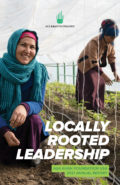What if we looked at development differently?
Instead of adapting global solutions to local problems, what if we scaled community-led problem solving?
Part of the 2021 Annual Report:
Locally Rooted Leadership
What if we looked at development
differently?
Instead of adapting global solutions to local problems, what if we scaled community-led problem solving?
These are the questions that guide Local Impact, an innovative, global partnership between the Aga Khan Foundation (AKF) and United States Agency for International Development (USAID).
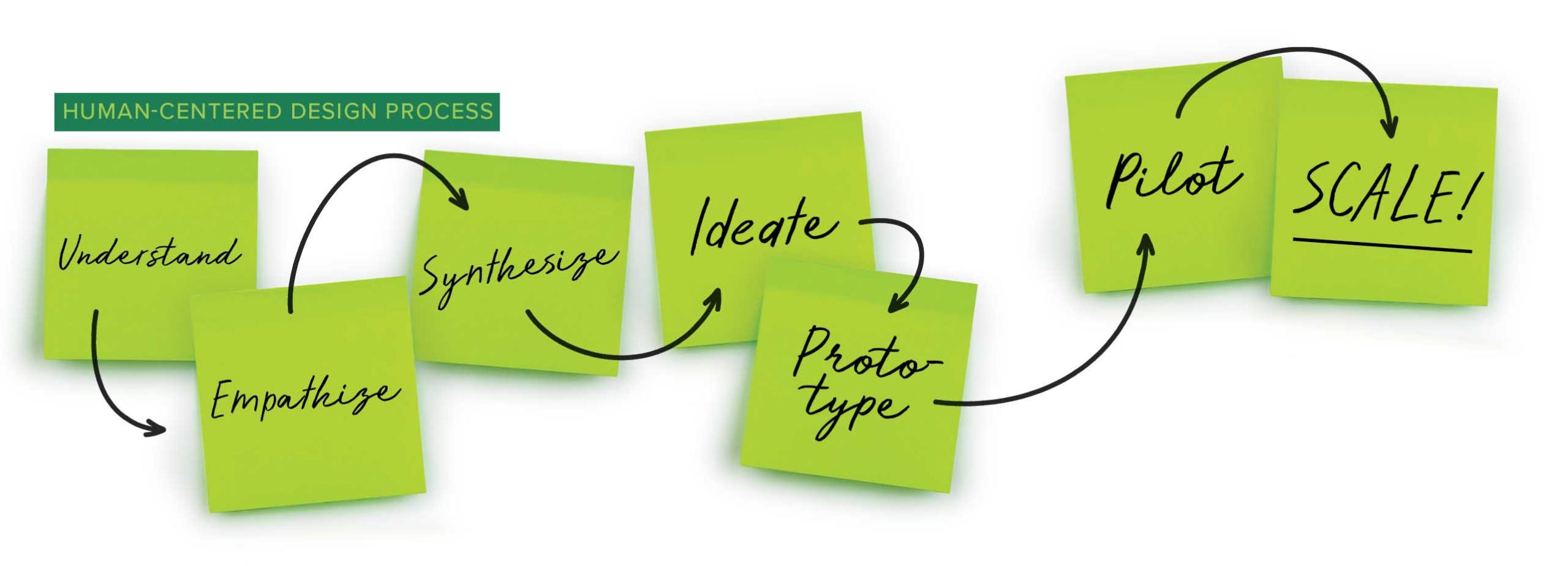
Local Impact is using the principles of human-centered design (HCD) to engage community members in order to define their own challenges and develop solutions to those challenges.
In August 2021, Local Impact launched the Catalyze Fund to scale several locally created solutions that were developed using the HCD methodology. The Catalyze Fund leverages support from US donors to pilot projects that have creative, high-impact, and evidence-based ideas for improving quality of life.
For much of the work in the international development sector, there is significant lead-time for project planning. Charting out a project plan with partners can take months or even years. But in today’s world, there is also a need to respond in real-time. The Catalyze Fund enables AKF staff and partners to work with communities in order to respond to immediate needs by investing in ideas that are ready for scale. As the COVID-19 pandemic has shown us, global and regional contexts and challenges can quickly change, and our programs need to quickly adapt.
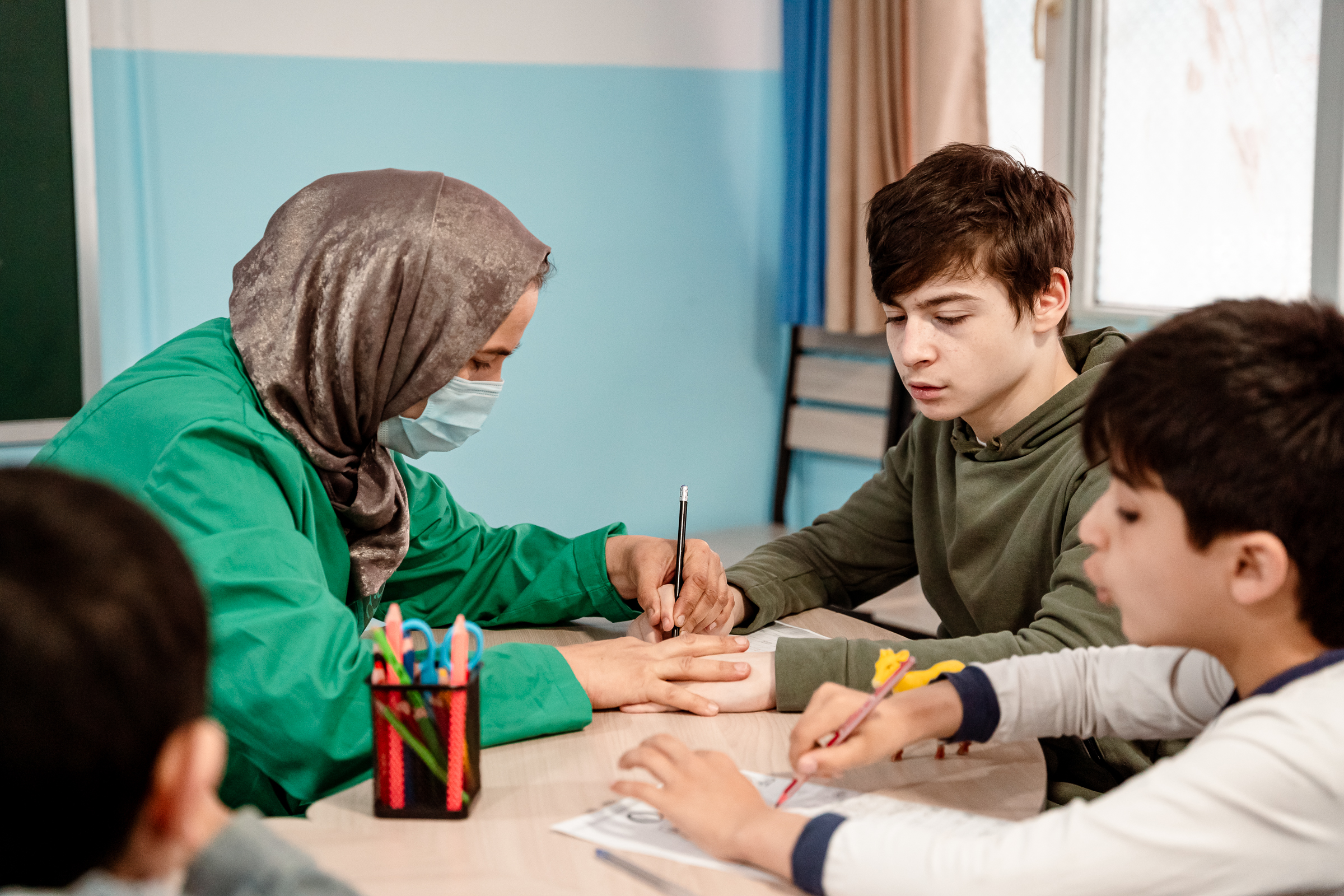
A teacher works with special needs students at a specialized learning center in Tajikistan
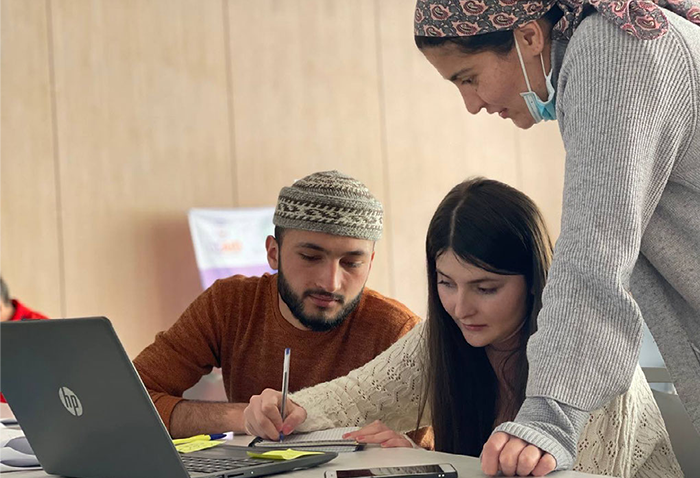
Young entrepreneurs receive feedback during a training
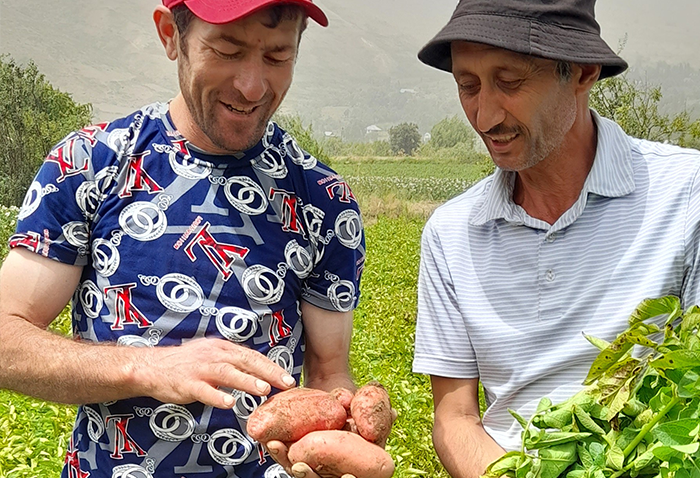
A farmer in Tajikistan shows potatoes grown using agronomic best practices
“Given the ever-evolving world that we live in, we knew that what we designed in 2019 may not respond to the needs of 2021 or even 2022,”
explained Anna Titulaer, AKF’s Global Lead of Local Impact and Strategic Partnerships.
“Local Impact has the flexibility to respond to the world as it is today, and the Catalyze Fund is meant to scale the ideas that have proven to be successful. We are focused on doubling down on what works.”

Better yet, the Catalyze Fund is supporting and scaling ideas developed by local leaders who have worked closely with a global team of advisors to expand on innovative and effective solutions.
In the first round of the Catalyze Fund, four concepts across Central Asia were selected. These projects include:
- Catalyzing Teacher-Led Education Innovations which helps teachers design, implement, and assess new ways to improve learning for marginalized students in Afghanistan, Kyrgyz Republic and Tajikistan.
- Catalyst for Fast Economic Growth which aims to help incubate and accelerate small and growing businesses and start-ups with high social impact potential in the Kyrgyz Republic.
- Adolescent Health and Well-Being which will improve the transition from childhood to adulthood for girls and boys between 10 and 15 years in 23 communities of Gorno-Badakhshan Autonomous Oblast in Tajikistan.
- Agribusiness Design to scale up climate-smart solutions that contribute to improved food security, increased income, and enhanced livelihoods for small farmers and businesses in remote mountainous communities. Learn more below!
Growing an Idea to Scale
“Many of us have land that we have not been able to use,”
says Gulomamadova Nazira, a farmer in Tajikistan’s Rushan district.
“With the greenhouses, we’ll get a chance to utilize our land and produce vegetables until late fall. This will allow many of us to provide a better life for our families.”
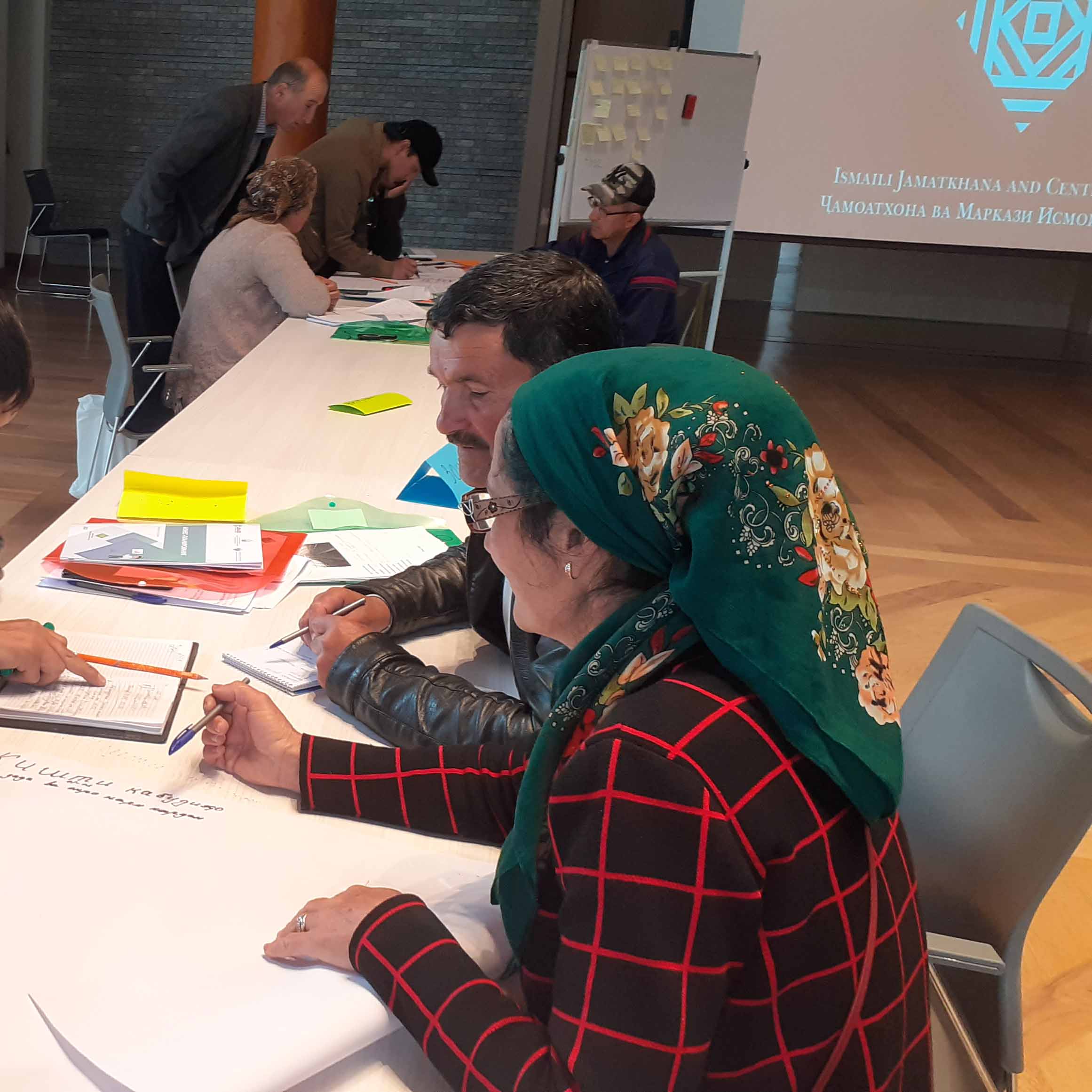
Greenhouses are a smart solution to helping farmers in Gorno-Badakhshan Autonomous Oblast, who face a short agricultural season because of the region’s climate. The Agribusiness Catalyze Fund project expands the use of greenhouses so farmers can extend the growing season by an average of three months. By producing more vegetables like tomatoes and cucumbers for their families to eat and to sell in the market, farmers are improving food security in the region and increasing their incomes.
With $996,665 from the Catalyze Fund, the Agribusiness project will support 36 greenhouses over two and a half years, benefiting more than 13,900 people in Tajikistan.
